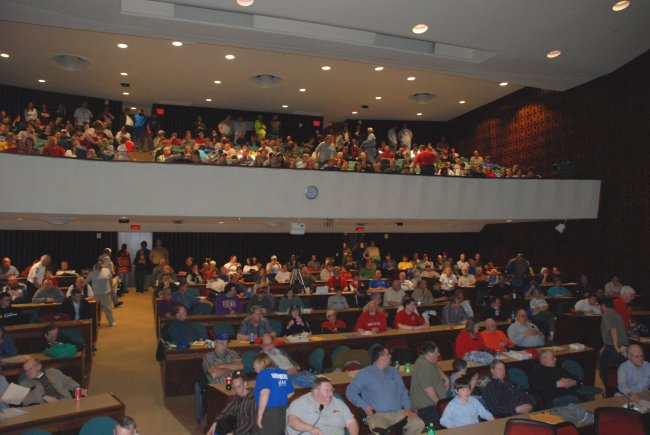Inside Hardin Hall
Our faculty and staff offices are predominantly housed in Hardin Hall, 3310 Holdrege Street, Lincoln, NE.
As a land-grant institution, SNR also maintains a presence in extension and research facilities throughout Nebraska, ensuring that our focus on natural resource research and education will continue to provide for the needs of the Nebraskans who support us.
Hardin Hall Use Policy (updated December 2017)
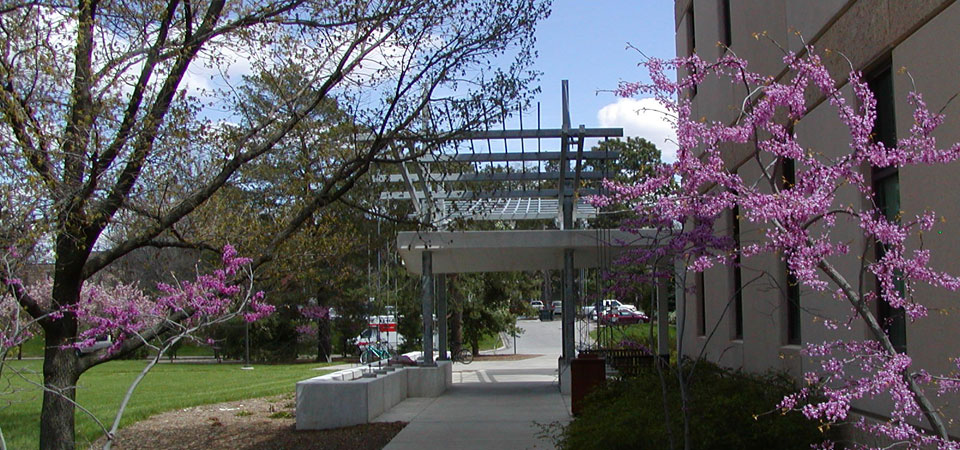
Classrooms:
Hardin Hall has excellent classroom facilities:
- Auditorium - Room 107 South (390 seats)
- Room 162 North (36 seats)
- Room 163 North (68 seats)
- Teaching wet labs Rooms 23 South & 24 South (30 seats each)
- Computer classroom Room 141 North (23 computers | seats)
- Computer classroom Room 142 North (24 computers | seats)
- Seven small- to medium-sized meeting rooms that can be used for small classes
- Hardin Hall floor plan
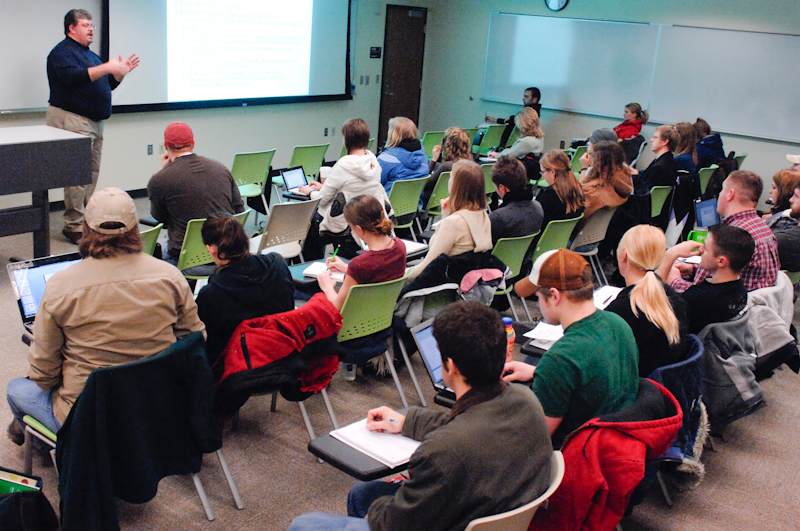
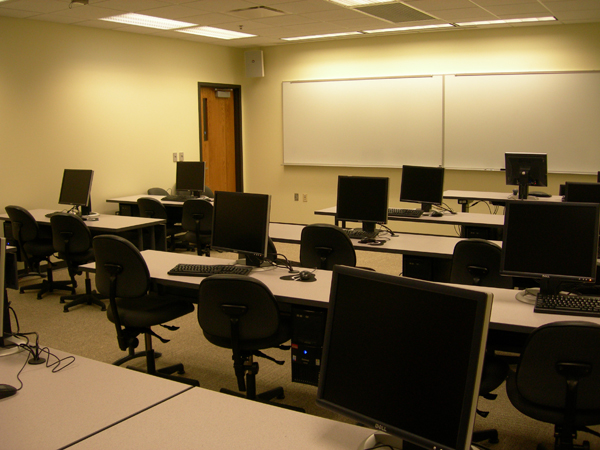
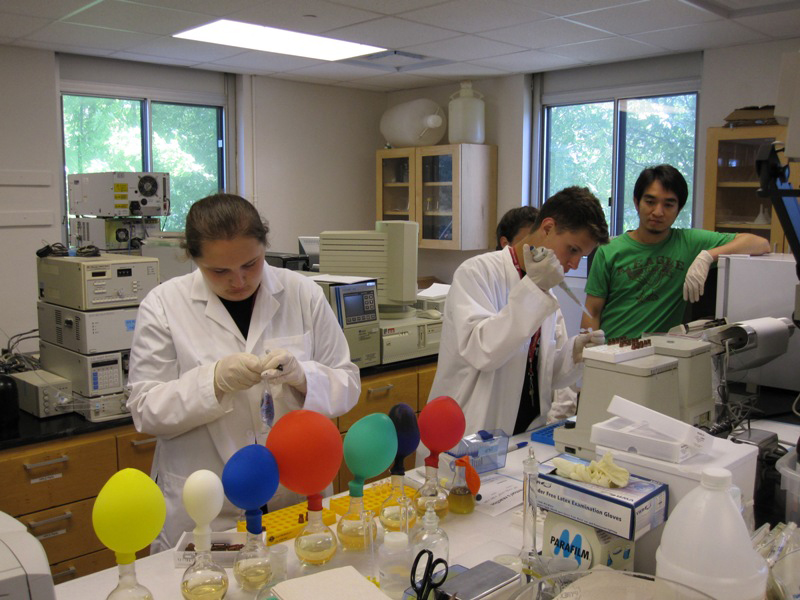
Laboratories
Our faculty have a diversity of research interests necessitating lab setups. We have access to labs in Hardin Hall, on East Campus, and around the state.
Hardin Hall labs:
Surface Water Lab
Room 115 - Sample Analysis
Room 125 - Field Preparation
Room 127 - Sample Processing and Preservation
Behavioral Analysis Lab
Room 200
Climate Remote Sensing Lab
Room 038
This lab contains a "Black Room" where bidirectional reflectance can be measured from 360 degrees azimuthally and 90 degrees over the zenith.
Ecohydrology and Hydrogeophysics Lab
Room 013.1
Monitor and model the flow of water through natural and human dominated ecosystems in order to understand how ecosystems function and how to utilize water more efficiently for food production.
Fisheries and Wildlife Labs
- Applied Wildlife Spatial Ecology Lab (Room 124)
- Fish & Wildlife Co-op Unit Lab (Room 118 & 122)
- Fisheries Research Lab (Room 116)
This lab investigates fish populations from Nebraska and around the world. - Landscape Analysis Lab (Room 135)
This lab provides habitat management recommendations that are supported with field data. - Conservation Genomics Lab (Room 114)
This lab performs analyses of samples of animals, tissues, and habitats.
Forestry Labs
- Forestry Ecology Lab (Room 219)
- Urban Forestry Lab (Room 222)
- Forestry Equipment Lab (Room 221)
- Forestry Physiology Lab (Room 217)
Geology/Petrology Labs
- Geology Analysis Lab (Room 030)
- Sample Preparation Lab (Room 031)
Groundwater Research Lab
Room 015 & 016
Luminescence Lab
Room 59b
Micrometeorology Lab
Room 140
This lab is used for testing and calibrating various micrometeorological sensors, and to prepare equipment for instrument demonstration in various classes.
Nebraska Mesonet Lab
Room 33
This lab is used to calibrate and maintain instrumentation used on the Nebraska State Climate Office's Nebraska Mesonet.
Palynology Lab
Room 032
This lab is for international training in ancient diet and climate change.
Soil Geomorphology/Rock Labs
The Soil Geomorphology Laboratory, which is well equipped with instruments for measuring clay mineralogy (x-ray diffractometer, particle size analysis, etc.).
- Soil Geomorphology Analysis Lab (Room 026)
- Instrumentation Lab (Room 027)
- Rock Lab (Room 029)
Spectroscopy Lab
Room 028
In this lab the Center for Advanced Land Management and Information Technologies conducts hyper-spectral remote sensing.
Water Growth Chamber
Room 127
East Campus Laboratories
- Aquatic Ecology and Limnology (Lake Study) Lab (Service Building)
-
This is an aquatic ecology and limnology (lake study) lab, housing an indoor microcosm facility with 32 artificial streams and 25 1,000-liter tanks.
- Soil Environmental Chemistry and Xenobiotics Laboratory (Kiesselbach Crops Research Laboratory Building)
The Soil Environmental Chemistry and Xenobiotics Laboratories are well equipped for environmental assessment of managed or disturbed ecosystems with state-of-the-art equipment. For instance, chemical fate and transport of contaminants can be assessed with a soil-column transport system.
- Water Sciences Laboratory (Water Sciences Laboratory Building)
The Water Sciences Laboratories, which provide cutting-edge analytical capabilities for pesticides and their metabolites, endocrine disrupters, heavy metals, and stable isotopes.
